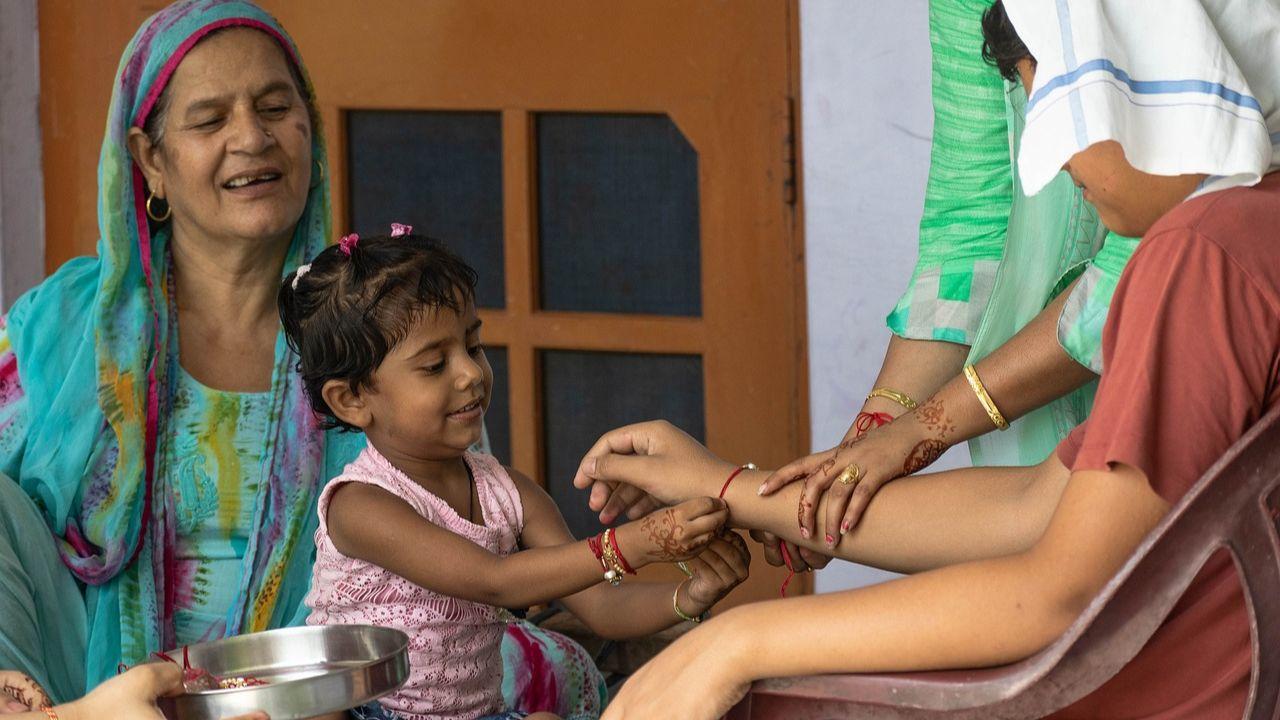Raksha Bandhan is often simply called Rakhi; Raksha Bandhan 2024, let us understand the significance of the festival in Indian tradition.

Representative Image
Raksha Bandhan, often simply called Rakhi, is one of the most cherished festivals in Indian tradition. Celebrated annually on the full moon day of the Hindu month of Shravan (usually in August), Raksha Bandhan symbolises the deep bond of love, protection, and loyalty between brothers and sisters. This festival is a celebration of family ties, cultural values, and the enduring relationship between siblings.
On Raksha Bandhan 2024, let us understand the significance of the festival in Indian tradition.
The Significance of Raksha Bandhan
The term "Raksha Bandhan" translates to "the bond of protection," which perfectly captures the essence of the festival. On this day, sisters tie a sacred thread called a rakhi around the wrists of their brothers. In return, brothers pledge to protect their sisters from harm and ensure their well-being. This exchange of vows and gifts strengthens the emotional connection between siblings and reinforces their mutual respect and affection.
Raksha Bandhan is not limited to blood relations. The festival extends beyond biological siblings, with people tying rakhis to close friends, cousins, and even neighbours, symbolising a broader sense of familial love and responsibility. In some cases, sisters tie rakhis to sisters, and brothers to brothers, reflecting the universal nature of the festival's themes of care and protection.
The Rituals of Raksha Bandhan
-
Preparation and Puja: The festivities begin with sisters preparing a thali (a decorative plate) with rakhis, sweets, rice, and a diya (oil lamp). A small prayer or puja is conducted to seek blessings for the brother’s well-being. The sister then applies a tilak (a mark) on the brother’s forehead, ties the rakhi on his wrist, and performs an aarti (a ritual involving a lit lamp). The brother, in turn, gives a gift to his sister as a token of his love and promise of protection.
-
Exchange of Gifts: Exchanging gifts is an integral part of Raksha Bandhan. Brothers often present their sisters with gifts such as clothes, jewellery, or money as a gesture of their appreciation. Sisters may also give small gifts to their brothers, reinforcing the bond of love and care.
-
Feasting and Family Gatherings: Raksha Bandhan is a time for family reunions. After the rakhi ceremony, families typically come together to enjoy a festive meal. Special dishes and sweets are prepared, adding to the joy of the occasion. It is a time to celebrate family ties and create lasting memories.
Cultural and Social Importance
Raksha Bandhan holds a special place in Indian culture, embodying the values of love, trust, and familial duty. The festival also serves as a reminder of the importance of protecting and supporting each other, not just within families but within communities as well. In some regions, the festival has also come to symbolise unity and social harmony, with people from different religions and communities participating in the celebrations.
Beyond its cultural significance, Raksha Bandhan also reflects the changing dynamics of sibling relationships. While traditionally associated with brothers protecting sisters, the festival has evolved to emphasise mutual protection and support, recognising the strength and resilience of both brothers and sisters.
 Subscribe today by clicking the link and stay updated with the latest news!" Click here!
Subscribe today by clicking the link and stay updated with the latest news!" Click here!








